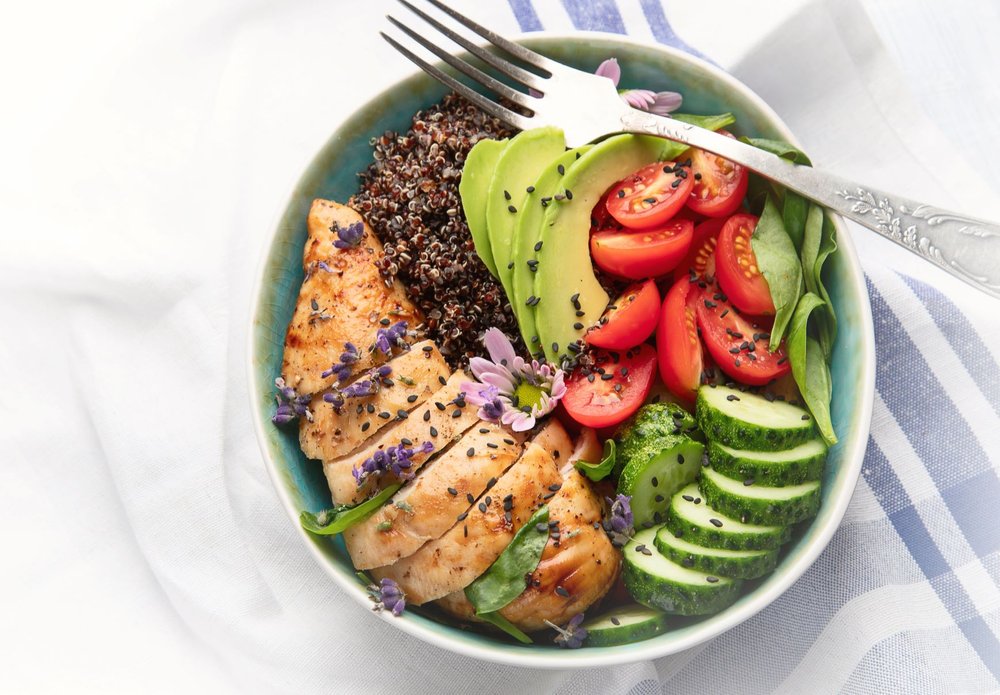
Lately we have been approached by multiple athletes addressing what we think about Creatine Supplementation.
For starters,
What is Creatine?
Creatine is a popular supplement that is often used by athletes and bodybuilders to improve performance and increase muscle mass. While it is most commonly associated with strength and power sports such as weightlifting and bodybuilding, creatine can also be an effective performance-enhancer for CrossFit athletes.
Creatine is a naturally occurring compound that is produced in the body and stored in the muscles. It helps to supply energy to the muscles during high-intensity exercise, such as weightlifting and sprinting. When taken as a supplement, creatine can increase muscle strength and power, particularly during short bursts of maximal effort.
One of the primary benefits of creatine for CrossFit athletes is its ability to improve muscle strength and power. CrossFit workouts often involve a variety of exercises that require high levels of strength and power, such as Olympic lifts, power cleans, and snatches. By increasing muscle strength and power, creatine can help CrossFit athletes to perform these exercises more effectively and achieve better results.
In addition to improving muscle strength and power, creatine can also increase muscle mass, particularly when combined with resistance training. This can be particularly beneficial for CrossFit athletes, as increased muscle mass can help to improve overall athletic performance.
While creatine is most commonly associated with strength and power, it has also been shown to improve endurance in some cases. This may be due to the fact that creatine can help to reduce muscle fatigue during prolonged exercise. In CrossFit, this can be especially useful during longer workouts that involve a combination of strength and endurance exercises.
Creatine is generally considered safe when taken in recommended doses, however it is important to be aware of the potential side effects. Some people may experience weight gain, muscle cramps, or gastrointestinal issues when taking creatine. It is always a good idea to consult with a healthcare professional before starting any new supplement regimen.
There are several forms of creatine supplements available on the market, including creatine monohydrate, creatine hydrochloride (HCL), and creatine ethyl ester (CEE). Among these, creatine monohydrate is the most studied and is generally considered the most effective form of creatine supplementation.
Creatine monohydrate is a simple, inexpensive form of creatine that has been shown to be effective at increasing muscle mass and strength when taken in appropriate doses. It is also the most widely available form of creatine.
Creatine HCL is a more soluble form of creatine that may be easier on the digestive system and may require a lower dose to be effective. However, there is less research available on the effectiveness of this form of creatine compared to monohydrate.
Creatine CEE is a form of creatine that has been chemically modified to be more easily absorbed by the body. However, it has not been shown to be more effective than monohydrate and is not as widely available.
Overall, creatine monohydrate is the most widely studied and widely available form of creatine supplementation and is generally considered the most effective. However, it is important to note that individual responses to different forms of creatine may vary, and it may be necessary to try different forms to determine which works best for you.
For Coco and myself (Andy) we have found that Creatine monohydrate is the go to choice.
What is the best way to take creatine?
There are several ways to take creatine monohydrate, and the best method may depend on your personal preference and goals. Here are a few guidelines for taking creatine monohydrate:
- Dosing: The most common dose of creatine monohydrate is 3-5 grams per day. Some people may require higher doses to see the desired effects, while others may respond well to lower doses. It is generally recommended to start with a lower dose and gradually increase to the desired level.
- Timing: Creatine can be taken at any time of day, but some people find it most convenient to take it with their post-workout meal or before bed. Some research suggests that taking creatine with a carbohydrate-rich meal may increase its absorption.
- Loading phase: Some people may choose to follow a “loading phase” when starting creatine supplementation, during which they take a higher dose (up to 20 grams per day) for the first 5-7 days to more quickly increase muscle creatine stores. This is not necessary for everyone and may not be necessary for those who are already consuming a diet high in meat and fish.
- Maintenance phase: After the loading phase, most people will enter a “maintenance phase” during which they take a lower dose (3-5 grams per day) to maintain their muscle creatine stores.
It is important to note that individual responses to creatine supplementation may vary and it may be necessary to experiment with different dosing and timing strategies to determine what works best for you.
Personally for Coco and I we tend to simply take 5-10grams on days when we remember to take it, often its with a post workout protein/simple carbs shake or with our pre-bed smoothies which include: frozen berries, banana, one scoop of UR Protein, almond milk, and 1-2 small scoops of creatine monohydrate.
Where to buy Creatine Monohydrate?
Creatine monohydrate is widely available on Amazon or eBay and can be found in a variety of brands and forms, including capsules, powders, and chewable tablets. When shopping for creatine monohydrate on Amazon or eBay, it is important to choose a reputable brand and to read the label carefully to ensure you are getting a pure, high-quality product. It may also be helpful to read reviews from other customers to get an idea of the product’s quality and effectiveness.
We use brands like:
Pure Creatine Monohydrate by microincredients on amazon.com or Ultra Micronized Creatine Monohydrate Powder Pharmaceutical on eBay
In conclusion:
- Creatine is naturally produced by the body and is found in small amounts in certain foods like meat and fish. It is also available as a dietary supplement.
- Creatine supplementation may cause an increase in body weight due to an increase in muscle mass and water retention. This can be beneficial for certain sports, such as weightlifting, but may not be desirable for sports that require a certain weight class.
- Creatine may have a mild diuretic effect, which can lead to an increase in urine production and slight dehydration. It is important for athletes to stay well hydrated while taking creatine supplements.
- Creatine supplementation is generally considered safe, but some people may experience gastrointestinal discomfort, such as bloating, nausea, and diarrhea.
- There is some evidence to suggest that creatine supplementation may have cognitive benefits, such as improved memory and reasoning skills. However, more research is needed to confirm these effects.
- Creatine supplements may interact with certain medications, such as diuretics, and it is important to speak with a healthcare provider before starting supplementation.





Leave a Reply